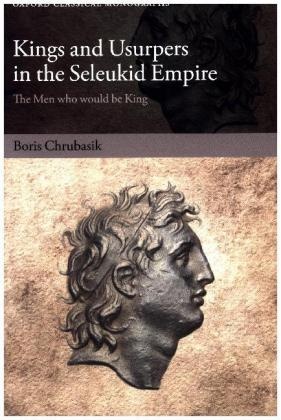Ulteriori informazioni
Zusatztext Much of Chrubasik's argument is quite persuasive ... and heuristically powerful: it certainly raises questions that Seleucid historians must address. Informationen zum Autor Boris Chrubasik is Assistant Professor of Historical Studies and Classics at the University of Toronto. Originally from Germany, he earned his doctorate at the University of Oxford and spent a year at the University of Exeter before moving to Toronto. An ancient historian, he has a particular interest in the history of the eastern Mediterranean from the Achaemenid to the late Hellenistic periods, and has published articles on the relationship between Hellenistic cities and kings and the Attalid state. He is currently in the early steps of a new project on the relationship between ancient empires and local sanctuaries in Ancient Turkey and the Levantine coast. Klappentext This volume focuses on ideas of kingship and power in the Seleukid empire, specifically the role of usurpers. Redefining the king as only one of several political players, it advances a political history predicated on social power and argues that despite its strong rulers the empire was structurally weak and the position of its kings precarious. Zusammenfassung This volume focuses on ideas of kingship and power in the Seleukid empire, specifically the role of usurpers. Redefining the king as only one of several political players, it advances a political history predicated on social power and argues that despite its strong rulers the empire was structurally weak and the position of its kings precarious.
Riassunto
This volume focuses on ideas of kingship and power in the Seleukid empire, specifically the role of usurpers. Redefining the king as only one of several political players, it advances a political history predicated on social power and argues that despite its strong rulers the empire was structurally weak and the position of its kings precarious.

